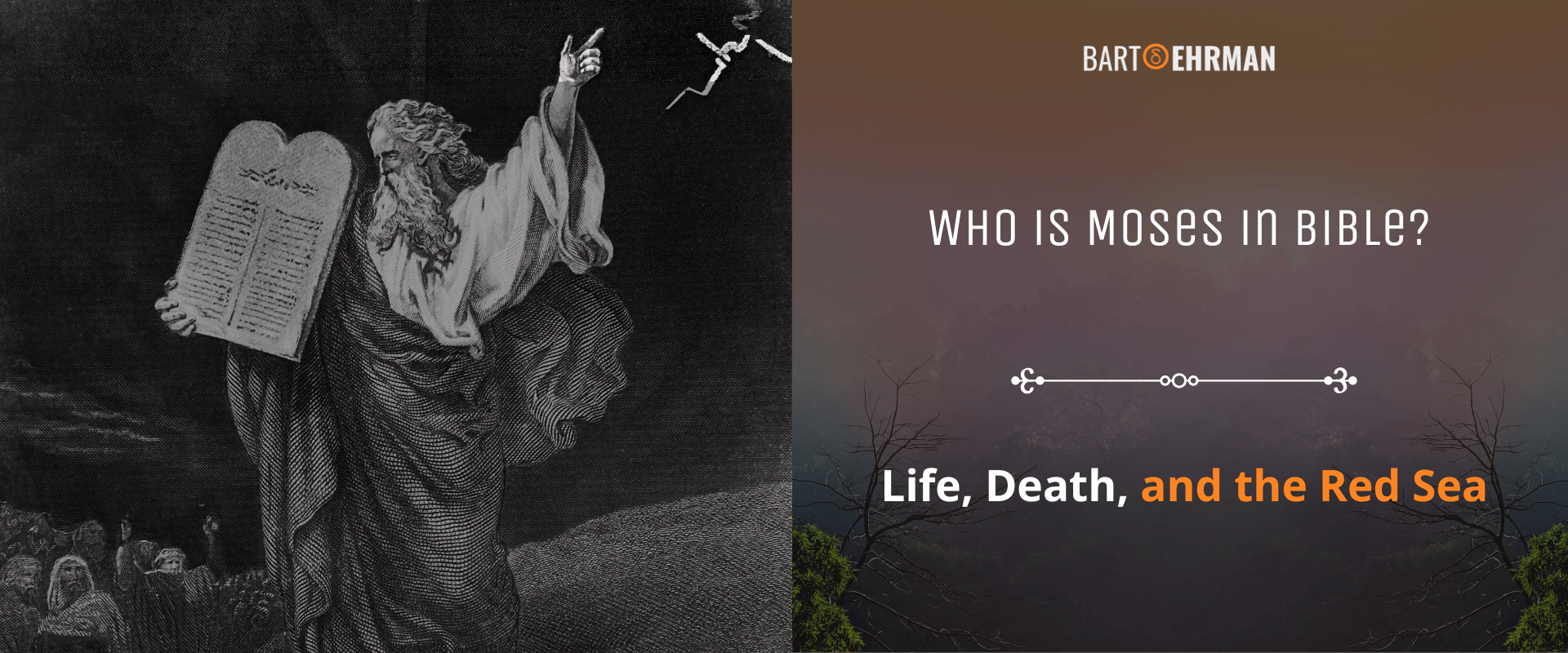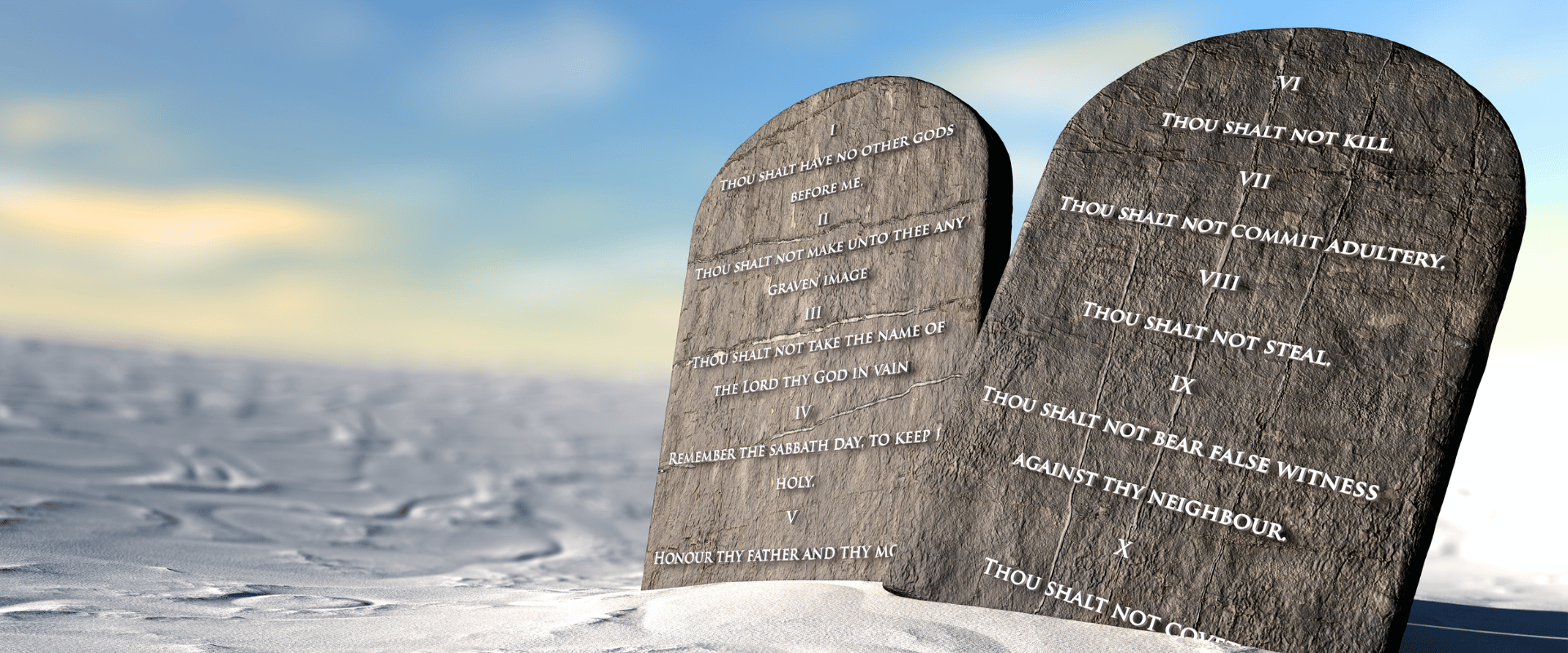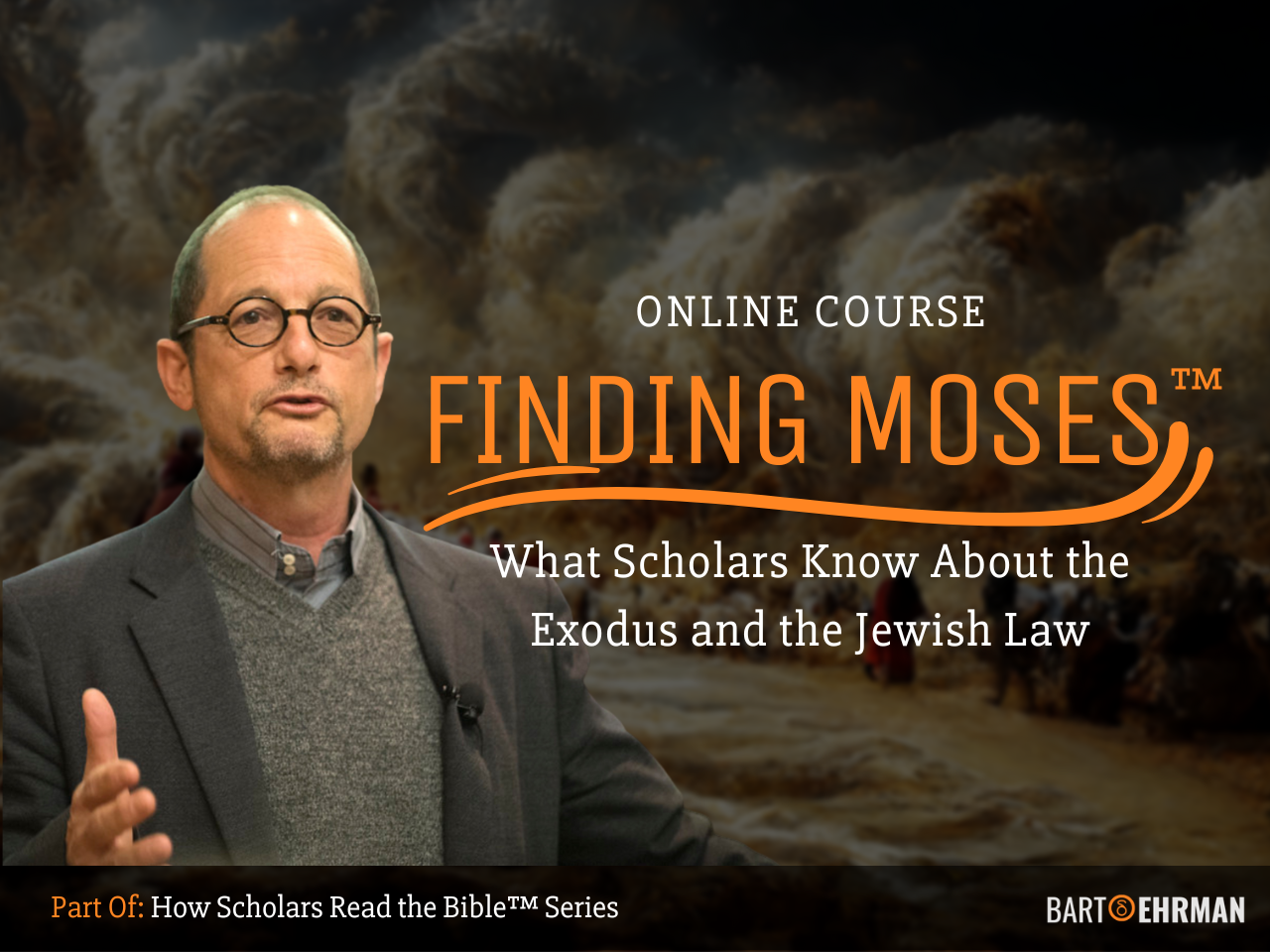Who is Moses in Bible? Let's Find Out

Written by Marko Marina, Ph.D.
Author | Historian | BE Contributor
Verified! See our guidelines
Verified! See our editorial guidelines
Date written: August 16th, 2023
Disclaimer: The views and opinions expressed in this article belong to the author and do not necessarily match my own. - Dr. Bart D. Ehrman
Who is Moses in the Bible? In the vast tapestry of Biblical history, few figures loom as prominently as Moses.
As a central character in the Old Testament and one of the greatest Jewish prophets, Moses’ story symbolizes courage, faith, and leadership. I am delving into Moses’ fascinating life and legacy in the following post.

Jews in Exile: Understanding the Full Story of Moses
To find out who Moses is in the Bible, we must consider the immediate political context surrounding his life. That brings us back to Joseph’s saga in the Book of Genesis. Joseph used his political influence to bring his extended family from Kanaan to the Land of Goshen in the eastern Nile Delta.
As the Israelite population grew, the new Pharaoh, unaware of Joseph, enslaved them to decrease their numbers. However, their oppression only caused them to multiply and spread even further.
Pharaoh then chose another path and gave the following order: “Every Hebrew boy that is born you must throw into the Nile, but let every girl live (Exodus 1, 22).” It was within the context of the Pharaoh’s commandment that Moses was born.
Who is Moses in the Bible: Moses’ Early Life
Moses’ early life is not documented in non-Jewish sources. However, Exodus provides a narrative that draws some cross-cultural similarities. According to the account, his mother placed him in an ark and hid it among the bulrushes by the riverbank.
He was then discovered by Pharaoh’s daughter, who adopted and raised him as an Egyptian. Eventually, he became a great leader.
These motifs mirror the story of Sargon of Akkad (2334 – 2279 BCE.), the first ruler of the Akkadian Empire.
Furthermore, the story of Moses’ infancy bears similarities to the early history of humankind. What do I mean by that? The Hebrew word for the basket he was placed in is also used to describe Noah’s Ark.
As Carol A. Redmount notes in The Oxford History of the Biblical World, Moses’ birth narrative “is built on folkloric motifs found throughout the ancient world.”
Moses’ adulthood: Escaping from Egypt and God’s call
Moses’ life in Egypt turns upside down when he kills an Egyptian, beating a Hebrew (Exod 2, 11-12). To escape the death penalty, he flees to Midian, a desert country south of Judah, where he marries a local woman. His wife’s name was Zipporah.
There, Moses experienced the most significant moment of his life: God’s call. Whenever I talk about it, I remember Charlton Heston’s fantastic performance as Moses in the classical movie The Ten Commandments. You should watch it!
According to Exodus (3, 1), Moses was tending his father-in-law’s flock on Mount Horeb when God appeared to him in the burning bush.
God said to him: “I have indeed seen the misery of my people in Egypt. I have heard them crying out because of their slave drivers, and I am concerned about their suffering… So now, go. I am sending you to Pharaoh to bring my people, the Israelites, out of Egypt (Exod 3, 7-10).
The Reluctant Prophet is the True Prophet
Moses’ call served as a model for all Old Testament prophets (cf. Jeremiah 1, Isaiah 6, Ezekiel 1). Deuteronomy 18:15 states that a true prophet must be like Moses, making him the archetype for all Jewish prophets.
Firstly, none of the prophets prayed to become prophets. For example, Moses was tending sheep when God interrupted him with a burning bush. Additionally, no true prophet immediately recognizes and accepts God’s call.
Moses objects because he doubts his worthiness for this significant role (Exod 3:11-4:13). As he states: “Pardon your servant, Lord. I have never been eloquent, neither in the past nor since you have spoken to your servant. I am slow of speech and tongue (Exod 4, 10). However, God responds to his objections with multiple reassurances.
The point is to establish that God will be with Moses every step of the way.
So, who was Moses in the Bible? He was a true prophet who never dreamed of being one. But, with reassurance from God, he accepts his call and returns to Egypt to liberate his people!
The Ten Plagues and the Parting of the Red Sea
Armed with his staff as a symbol of authority and divine guidance, Moses confronts Pharaoh in Egypt to deliver the message of liberation. However, Pharaoh’s heart remains hardened, and a series of divine plagues are sent to persuade him to release the Israelites.
Pharaoh finally relented after the final plague and the death of Egypt’s firstborn, allowing the Israelites to depart. Moses led the Israelites on their momentous journey through the parted waters of the Red Sea, escaping the clutches of their oppressors.
Years ago, I read an article about an Egyptian medical papyrus in a medical journal. The papyrus describes burns from red waters that become infected with larvae. The paper argues that the red waters of the Nile can cause burns because they are acidic.
That would mean the red acidic Nile caused the first plague by killing the fish. Furthermore, the sulfate-laced waters caused the second plague by driving out the frogs. Meanwhile, the article identifies the presence of larvae in the wounds as the cause of the third and fourth plagues.
The Parting of the Red Sea or the Sea of Reeds?
The tendency to find naturalistic explanations supporting the historicity of Exodus extends to how people read the famous account of Moses parting the Red Sea (Exod 14, 1-31).
Some scholars say the Israelites escaped by walking across the marshy “Sea of Reeds.” When the Egyptians pursued them with chariots and horses, they became stuck and perished.
I believe these naturalistic explanations for the ten plagues and the parting of the Red Sea are flawed for several reasons:
- First and most important, if these events were natural occurrences, the entire meaning of the story in Exodus would be lost. The plagues and the parting of the Red Sea demonstrated the mighty hand of God, who, with the help of Moses, delivered his people from slavery.
- The second problem lies in the fact that the proponents of naturalistic explanations are taking Exodus literally. In their opinion, everything happened as described in the account. It just wasn’t miraculous. In my opinion, this seems like a strange type of fundamentalism.
Additionally, the linguistic and archeological attempts to isolate a specific location of the “Sea of Reeds” based on Egyptian sources were unsuccessful. As John Huddleston observes in volume 5 of the Anchor Bible Dictionary: “Different passages point to varying locations.”

Moses’ Later Life and Death
As a leader and prophet, Moses brought his people to Mount Sinai, where he received the Ten Commandments from God (Exodus 20:1-21). This act symbolized the establishment of a covenant between the Israelites and their Creator.
Despite facing challenges and moments of doubt, Moses remained steadfast in his faith and commitment to God’s purpose. As they neared the Promised Land, his desire to enter it was met with God’s decree that he would not, yet he was granted a glimpse of the land from afar.
He ascended Mount Nebo in modern-day Jordan and beheld the Promised Land for the first and last time. Soon after that, Moses died (Deut 34, 1-8).
How old was Moses when he died? According to the account in Deuteronomy, he was a hundred and twenty years old! However, “his eyes were not weak nor his strength gone (Deut 34, 8).
Summing up Conclusions: Who Was Moses in the Bible?
Who was Moses in the Bible? He is depicted as a leader and the greatest Jewish prophet. In the annals of history, few figures stand as tall and enduring as Moses. From his miraculous rescue as an infant to his pivotal role in leading the Israelites out of Egypt, Moses’ life became a cornerstone of the Jewish religion.
But what can we know historically about Moses and the Exodus? Was he an actual figure or a religious myth? Did Exodus happen? How do we understand the full story of Moses? What can we learn from contemporary archeology?
To learn more about Moses and his life from a scholarly perspective, I invite you to join Bart’s excellent course, “Finding Moses.”
Don’t miss this opportunity to enrich your understanding of Moses and the Exodus through the lens of modern scholarship. Join Bart in “Finding Moses” and embark on an enlightening exploration into one of the most compelling stories of ancient times. Click the link below.

